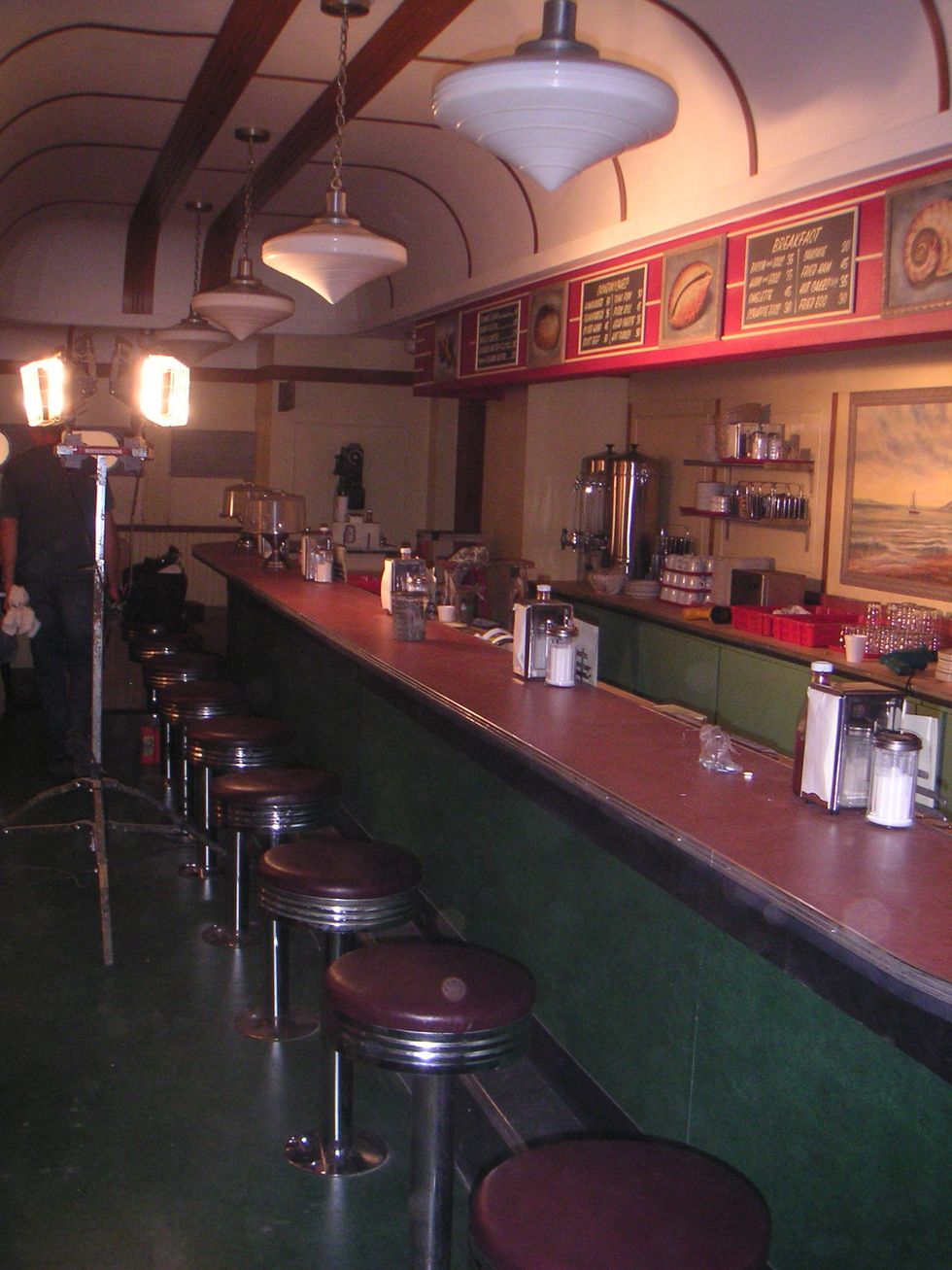First, CONTENT WARNING for violence and torture in later parts of this story.
This is the first part of a fictional story about a diner-- but it is not like any ordinary diner.
"The Regulars"
Our story begins in a diner, during the breakfast rush. This diner has the familiar cracked vinyl booths, coffee-stained carpeting, and overworked waitresses one might expect. Sitting at the counter, a man sips a bitter black coffee and reads a newspaper with faded ink. A young woman eats a stack of stale pancakes at a booth by the window. A grandmotherly woman knits a hat as she ignores the burnt omelet in front of her.
These are just some of the regulars at the diner in Hell.
But wait. It’s hell, there wouldn’t be a diner there, readers may well think. But then, the whole concept of Hell is frankly pretty implausible, isn’t it? Besides, I wouldn’t lie. At least, not about anything important.
Now to get back to the diner. It’s been here for as long as anyone can remember, including old granny Bess (who’s still working on that hat). No one knows how long she’s been here, and most don’t want to ask. “I heard she killed a man,” some say. “You don’t want to get on her bad side.” All anyone really knows is that she orders an omelet and a hot cocoa every morning, and knits quietly all day.
They make fun of her sometimes because she’s making something no one will ever use. There’s not fire here, but it’s always hot and humid, in the way that makes people stick to chairs and that makes the air feel like a thick blanket. She says she wants to keep busy somehow, which she does.
But she doesn’t say that she makes these things for her granddaughter, because she still believes she’s going back home. If she told anyone that, she’d be taken to The Room, and that’s the last thing she wants.
She’s wearing her favorite flowy sundress, but it’s been turned black just like everyone else’s clothes. In her pocket is a worn picture that she almost never takes out. In it, she is smiling next to a girl of about fourteen. On the back, in delicate cursive, is written: Hanna and Grammy. Sometimes, when no one is looking, Bess takes the picture out and looks at it, a pained expression in her normally icy blue eyes.
She never does it when she’s facing the poster on the wall with the slick looking man who could be anywhere from twenty-five to forty. Remember, Satan Cares! the poster insists. It doesn’t help this argument that the not-well-hidden camera is less than six inches away from this giant banner.
Today, though, Bess’s table is in the corner, and is well hidden from any cameras. The hat she’s knitting has to be black, but she hopes Hanna won't mind--anyhow, she probably won't actually deliver this hat. As Bess counts stitches, she thinks of the last time she saw Hanna. Hanna was buying a dress, and asked her grandmother to come with. The dress she chose was bright yellow, and clashed with her mass of curly red hair—but it didn’t matter, because she loved that dress, so she made it work. It was such a beautiful day.
As granny Bess thinks and knits, she doesn’t notice the man with the notepad. He had noticed her look at the picture, and he saw the love in her smile when she went back to knitting. He jots down what he just saw, and tucks away his notepad.
As granny Bess walks up to her room above the diner, she sighs, wishing that someday something could change. She would pray, but that seems a little beside the point now.
Her room is a comfy little place, complete with creaky springs in the bed, a musty blanket that never creates a good sleeping temperature, and three cameras. A large black and white sign declares “NOTICE: Display of any artwork may induce emotions other than fear and therefore is strictly prohibited by the management. We appreciate your coerced cooperation.”
What more could anyone want?


















